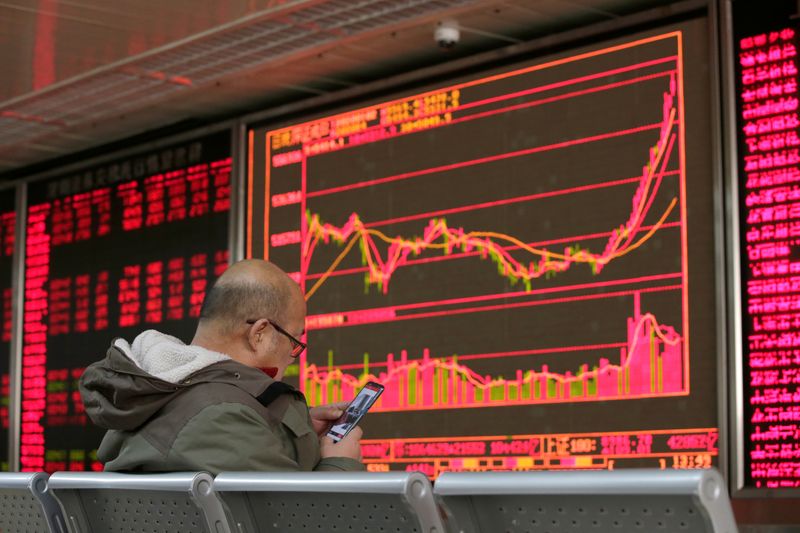This post was originally published on this site

Investing.com– Asian stocks saw choppy trade on Wednesday as investors awaited the results of the U.S. midterm elections for more cues on the world’s largest economy, while Chinese stocks slumped further on more weak economic data.
China’s blue-chip Shanghai Shenzhen CSI 300 index fell 0.9%, while the Shanghai Composite index fell 0.5% after data showed the country’s factory gate inflation shrank for the first time in a year. Consumer inflation also grew less than expected, as COVID-19 lockdowns crimped local economic activity.
The dismal data served to worsen sentiment toward Chinese markets, amid diminishing hopes that the country will scale back its strict COVID-19 rules.
China is struggling with its worst COVID outbreak since May, which saw the reintroduction of movement curbs in several economic hubs. This has also greatly soured investor sentiment towards the country, with local markets now unwinding a bulk of gains made last week.
Hong Kong stocks were also hit hard by worsening sentiment towards China, with the Hang Seng index losing 1.5%.
But Chinese real estate stocks were the sole bright spot. Property developers including Country Garden Holdings Company Ltd (HK:2007), Gemdale Corp (SS:600383), and Beijing Capital Co Ltd (SS:600008) surged between 6% and 15% as the government expanded a financing program supporting debt raises in the beleaguered sector.
Other Asian markets were mixed. Technology-heavy bourses continued to benefit from expectations of smaller U.S. interest rate hikes. The Taiwan Weighted index jumped 2%, while South Korea’s KOSPI index rose 0.8%.
India’s blue-chip Nifty 50 index shed 0.1%, while Australia’s S&P/ASX 200 index rose 0.6%.
U.S. CPI inflation data due on Thursday is expected to shine more light on the path of U.S. interest rates, given that the Fed signaled it will keep raising interest rates until inflation is brought to heel.
But given that the central bank also signaled that interest rates will likely peak at higher levels than initially expected, Asian markets are likely to stay under pressure.
Investors were also awaiting the results of the U.S. midterm elections, with an early count indicating a tight race. Such a result would likely result in political gridlock for the U.S., implying no major changes to fiscal policy.


